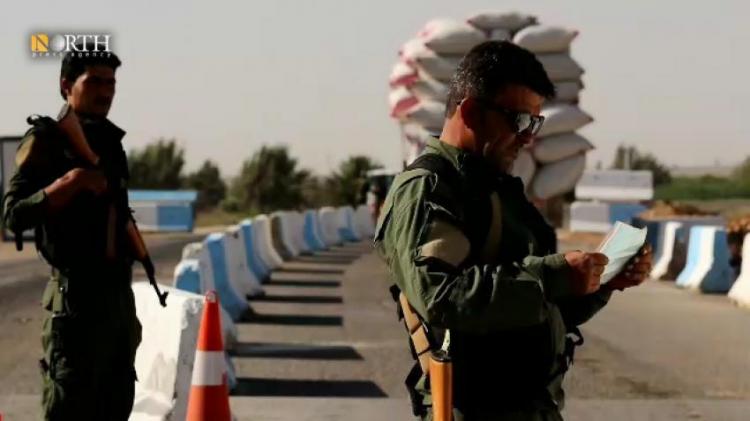Many active cell bombings were aborted since the Turkish military operation has begun – Official in Asayish, Raqqa
Raqqa – North-Press Agency
Mustafa al-Khalil
An administrator of the Internal Security Forces (Asayish) in the Euphrates region confirmed that a large number of explosions were aborted, and hundreds of mines were removed from the remains of the Islamic State (ISIS) since the start of the Turkish military operation in north and eastern Syria, on the 9th of October 2019.
As Baha' al-Salal has confirmed to North-Press that after terrorism has been almost eliminated in the northeastern regions of Syria, the Turkish intervention destabilized the region due to the formation of cells that carry out bombings, of which the most were belonged to Turkey.
Al-Salal said that the revealed number of explosions, car bombs and mines reached 18 explosions, while 11 other explosions were controlled before they occurred, bringing the total number of cases targeting civilians to 29 explosions.
"In addition, the engineering teams of the Internal Security Forces dismantled 455 landmines, and we found 4 car bombs that were intended for detonation, three of which were dismantled before they exploded," he said.
Regarding the methods of recruiting the sleeper cells in Raqqa, and the Turkish role in planting and supporting them, al-Salal said that the majority of these cells belong to the Euphrates Shield, and Erdogan is responsible for the bloodshed in northern Syria.
"Everyone knows that the majority of ISIS members who fled Raqqa and Deir ez-Zor to the Turkish territories are now fighting within the ranks of the Turkish-backed opposition groups, so these cells are recruited internally through friendship, and through social networking sites. These cells receive support from the Turkish intelligence," al-Salal said.
Moreover, he added that these bombings aim to destabilize security and stability in the region. He stressed that Turkey is trying to change the demography of the region under the pretext of Turkish national security, which has become threatened even by the situation in Libya.
Al-Salal hoped that the residents would communicate with the Internal Security Forces in Raqqa if they saw any matter violates the security of civilians, while the security measures taken by the Internal Security Forces in Raqqa during the Christmas and New Year period, included the non-passage of large and medium trucks.
Baha' al-Salal concluded saying that motorcycle traffic in city centers has been banned and that there will be mobile checkpoints on main roads on the outskirts of cities.

